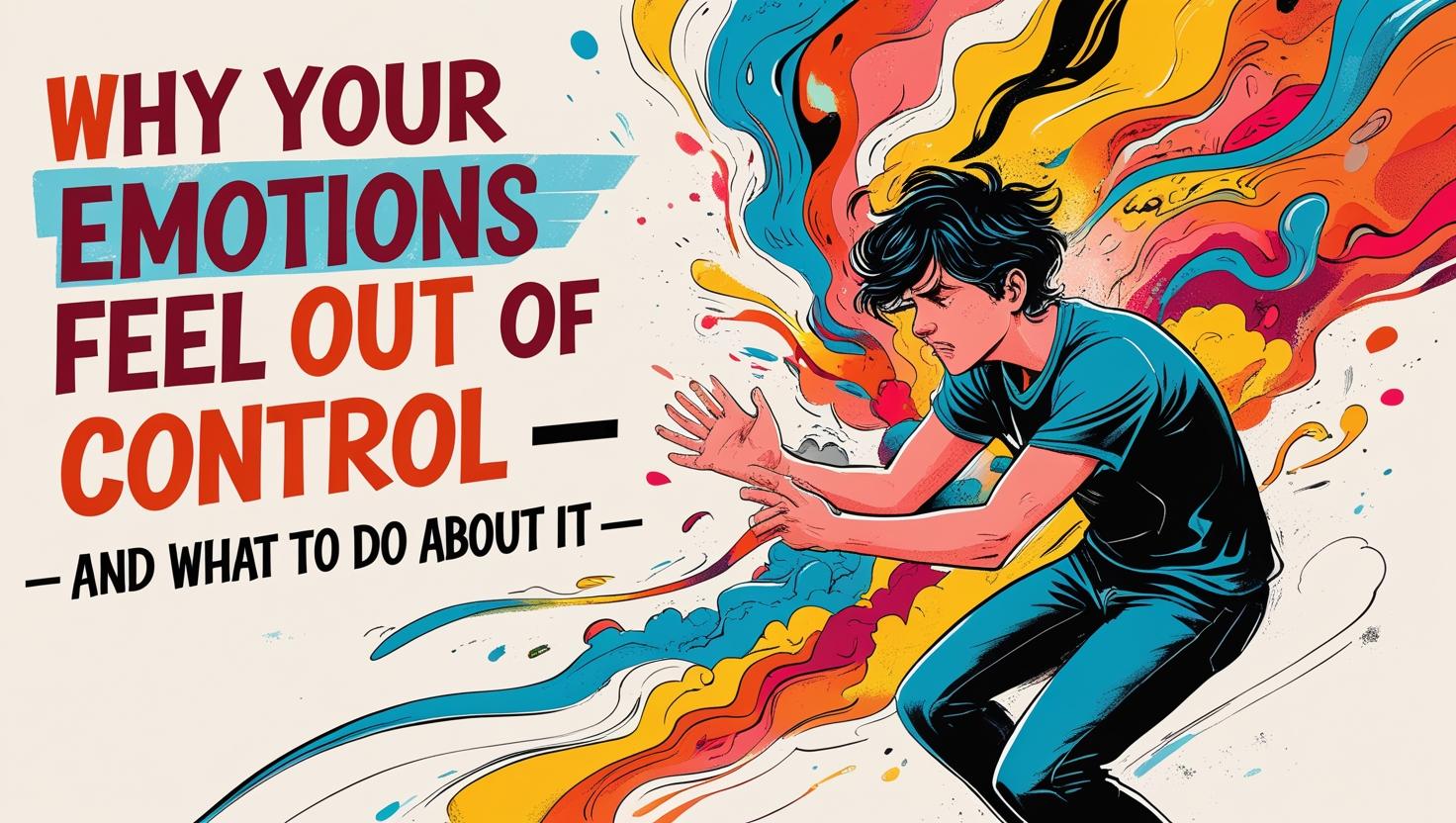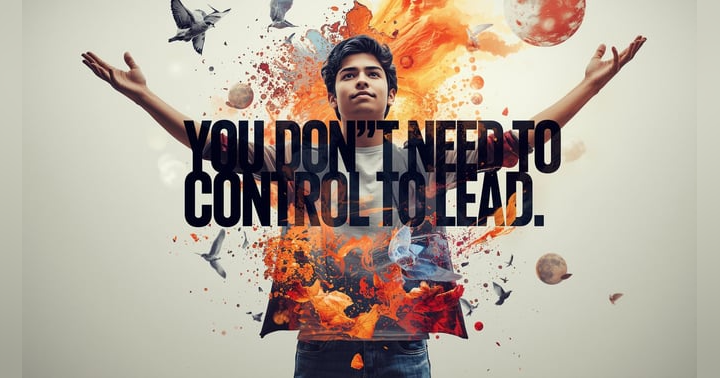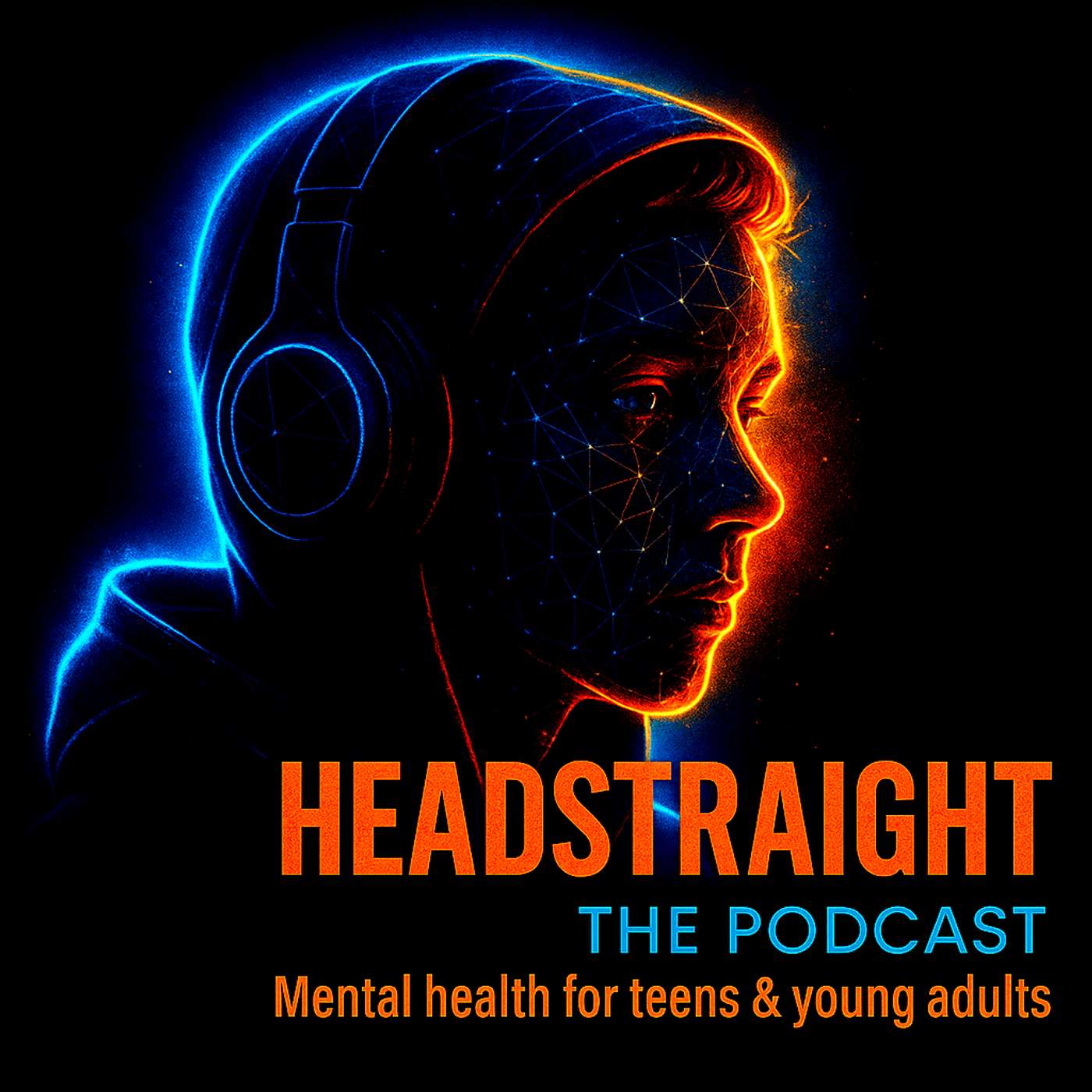Why Your Emotions Feel Out of Control — and What to Do About It

You know that feeling when your emotions just take over?
One second you're fine. The next you're snapping at someone, feeling like you might cry for no reason, or walking around with this low-level panic buzzing in your chest — and you can’t explain any of it.
Then comes the guilt. Or shame. Or someone telling you to “calm down” or “stop overreacting” like it’s helpful.
And there you are, wondering:
Why can’t I control how I feel?
That question — that exact experience — is what this episode of Headstraight is built around. Because emotions are part of being human. But when they feel like they’ve taken over and you’re stuck in the back seat, something needs to shift.
🎧 Prefer to listen on the go? Click here to open the episode on your preferred platform.
First off — you’re not “too emotional”, and you’re definitely not broken
This isn’t about weakness or overreacting. It’s about how your brain is wired — especially if you’re still in your teens or early twenties.
Right now, your amygdala — the part of your brain responsible for fear, anger, and emotional response — is firing on all cylinders. Meanwhile, the part that helps you slow down, think clearly, and regulate how you act (your prefrontal cortex) is still developing.
It’s like your brain has a full-throttle emotional accelerator, but the brakes are still being installed. So if it feels like your feelings hit fast, hard, and loud — that’s not you being dramatic. That’s biology.
But it doesn’t mean you’re powerless.
And then life piles on
You’re not just dealing with brain chemistry. You’re juggling school pressure, friendships, social media, family stress, identity, body image, future decisions — it’s a lot. More than most people realise.
Your emotions are reacting to all of that. They’re sounding the alarm — constantly. But the problem is, your brain doesn’t always know the difference between real danger and everyday discomfort.
So whether you're facing a genuine threat or just feeling overwhelmed before a class presentation, your body reacts the same way:
Heart racing. Tight chest. Shallow breathing. Panic. Anger. Tears.
It makes perfect sense — even if it doesn’t feel like it.
So let’s look at the main culprits — the emotions that hit hardest
😡 Anger
Anger is fast, hot, and powerful. It makes you feel like you have to act — now. And it can feel satisfying to let it out in the moment. But that satisfaction is short-lived, and the damage it causes? That usually hangs around longer.
A sarcastic comment from a mate. Someone invading your space. A teacher shutting you down in class.
Your brain says: Fix it. But that reaction isn’t always the right one — or the helpful one.
😨 Fear
Fear’s whole job is to keep you safe. It’s your body’s alarm system. But it’s not great at context.
So whether you’re about to get hit by a car or you’re about to walk into a room full of strangers — your brain reacts the same way: panic mode.
Your body floods with adrenaline. Fight or flight. Dry mouth. Shaky hands. Racing thoughts.
Even when you're not in danger.
😞 Sadness
Sadness pulls you down. Slows you down. It’s designed to help you process loss, disappointment, or change. But it doesn’t come with an off switch.
You start thinking sad thoughts.
Then those thoughts make you feel worse.
Then you think worse thoughts.
And suddenly you're stuck in a loop — not because you’re weak, but because your brain is trying to make sense of something it doesn’t know how to fix.
So how are you meant to “control” all this?
Let’s be honest — most people who say “just control your emotions” have no idea what they’re talking about. You can’t control a feeling any more than you can control the weather. But you can prepare for it. You can manage it. You can ride it out without letting it wreck everything in its path.
That’s what we mean when we talk about emotional regulation.
🧠 Step 1: Name the emotion
Sounds obvious, but it’s often missed. “I feel bad” doesn’t help. Try “I feel anxious”, “overstimulated”, “lonely”, or “overwhelmed.” Naming the feeling gives you some space from it — and space gives you options.
🔍 Step 2: Figure out what triggered it
What happened just before you felt this way? Was it a look someone gave you? A thought that popped into your head? A memory? A pressure?
The clearer you are about what caused the reaction, the better you can decide what needs to happen next.
⏸ Step 3: Check your reaction
Not everything needs an immediate response. Sometimes the best thing you can do is stop, breathe, step back, and decide if you even want to react — or if the feeling will pass on its own.
🗣 Step 4: Challenge the thought
Feelings are real. But the thoughts that come with them? Not always.
“I’m going to mess this up.”
“They hate me.”
“I can’t do this.”
Slow it down. Ask yourself: is that actually true — or is it just your stress talking?
🌊 Step 5: Let it pass
You don’t have to act on every emotion. Sometimes you just have to let it run its course. You don’t have to fix it. You just have to survive it — and you will.
“You don’t have to shut your emotions down. You just have to stop them running the show.”
Final thought
This stuff isn’t easy. It takes practice. And there’s no perfect version of “getting it right.” You’ll still have days where your emotions get the better of you — where you say something you regret or shut down when you wish you’d spoken up. That’s not failure. That’s just being human.
What matters is that you’re learning to notice what you’re feeling, and making space between the emotion and what you do next. That space — that pause — is where your power is. It’s not about being calm all the time. It’s about choosing how to move forward, even when it feels hard.
So next time your emotions come up strong — pause. Name it. Understand it. Then decide what you want to do with it. You’re still the one in charge.
Know someone who needs to hear this?
If this episode spoke to you, chances are it’ll speak to someone else too. So don’t keep it to yourself.
Share the link — drop it in a group chat, send it to a mate who’s having a rough time, or repost it to your socials. Someone out there might be stuck in the same emotional mess, thinking they’re the only one feeling like this.
Let them know they’re not alone. Let them know it can change.



